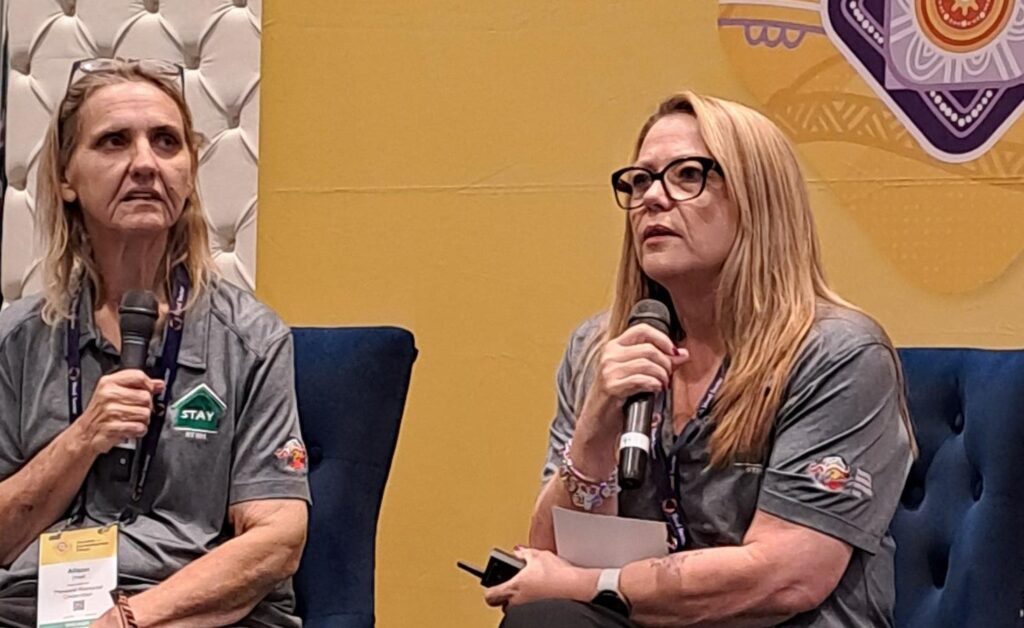“There are many ways to view the world, but when we look through the lens of true culture, one thing becomes clear—at its heart, culture is about respect. It’s about the willingness to listen, even when we don’t fully understand. And that willingness must go both ways.” – Aunty Alison Croall
Tharawal Housing Manager Aunty Alison Croall (pictured, left) and Kath Flack-Crane, Service Manager at Neami Campbelltown, recently told the story of their successful partnership at the 7th National Housing and Homelessness Forum.
Neami and Tharawal work in partnership to deliver the Sustaining Tenancies in Social Housing program, which is known to staff and the local community as Home to Stay. The program supports people at risk of homelessness to sustain their tenancy and improve wellbeing.
They’ve shared a reflection with us on how they’ve worked together as a national service provider and Aboriginal Community Controlled Health Organisation (ACCHO) to deliver the best outcomes for community.
It was clear from the outset that connection and trust would be an integral part of Neami and Tharawal’s partnership.
Kath recalls when she first learnt that Neami had approached Tharawal about delivering the STSH program together. “I was sitting on a bench in the sun and Aunt came and sat with me,” she said. “She asked me about Steve Suttie (Neami Senior Manager Operations) and whether I knew and trusted him.
“I said he was my manager, and I had also known him for a long time. I said I did indeed trust him, and he had been a sounding board for me for a long time. She said to me ‘if you trust him, I will trust him’.”
For Aunty Allison, there is deep value to this work. “For me, every decision I make is driven by one purpose: the wellbeing of the community. It’s always at the forefront of my thinking,” she said.
“I believe that this focus on community is shared by many, but as an Aboriginal person, it goes even deeper. When I help build a healthier community, I’m also helping to heal and strengthen my own family. Our stories, our connections—they’re all tied together.”
